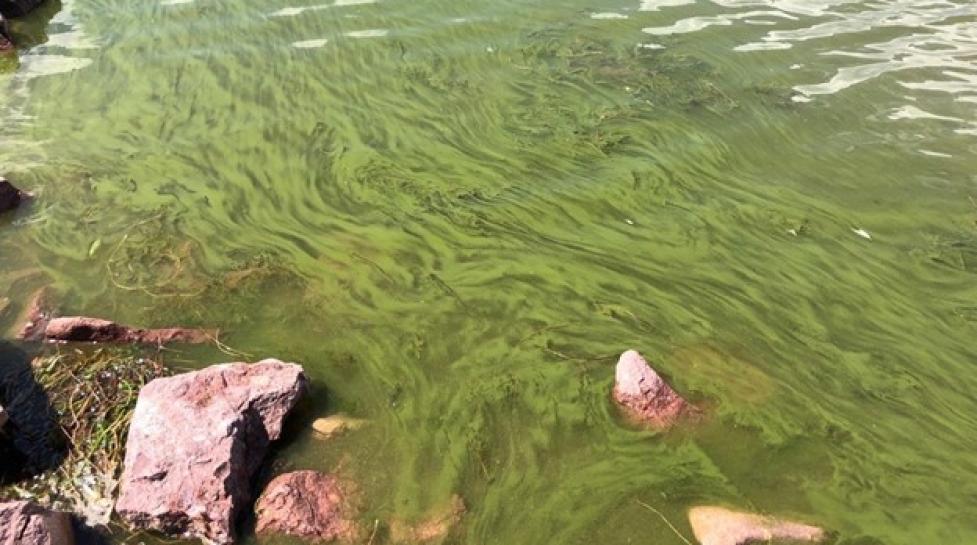The City of Boulder is advising community members to stay out of the water and not allow dogs in the reservoir.
City staff and community members have observed a potentially harmful algae bloom (i.e., cyanobacteria) in the Boulder Reservoir. At elevated levels, cyanobacteria may produce toxins that are harmful to people and pets; therefore, the City of Boulder is advising community members to stay out of the water and not allow dogs in the reservoir. Anglers should also exercise caution and follow state recommendations to clean any caught fish thoroughly and discard fish waste appropriately.
While the swim beach is closed for the season, watercraft are still allowed on the Reservoir. The city is recommending avoiding contact with the water in areas of an active bloom. Caution in the water should be exercised throughout the Reservoir.
Cyanobacteria blooms may look like:
- Thick pea soup
- Spilled bluish-green paint on the water's surface
- A thick mat of foam along the shoreline
In general, the long, stringy, bright green strands that appear either slimy or cottony, or are mustard yellow in color, are not the potentially harmful type of algae.
Boulder Reservoir is not currently being used by the city as a drinking water supply. Boulder is coordinating with the Northern Colorado Water Conservancy District on the response to this cyanobacteria bloom, as Northern Water uses the reservoir to deliver water to downstream users.
City staff are collecting water samples to understand whether cyanotoxins are present and at what concentrations. In the meantime, and out of an abundance of caution, the City of Boulder is advising community members to keep dogs out of the water and avoid contact recreation.
Keep Reading
News keep reading
-
Fire-Retardant Slurry in Boulder Reservoir Currently Causing Minimal Impacts to Recreation, None To Water Quality
-
Northern Water and the City of Boulder To Manage Eurasian Watermilfoil at Boulder Reservoir With Targeted Herbicide Treatment
-
Boulder Reservoir Swim Beach Reopened After Elevated Bacteria Levels (UPDATED)
-
What's Coming up for Swimming at our Pools and the Reservoir?
